Abstract
The infectivity to mosquitoes of 31 acute Plasmodium vivax patients was measured by permitting mosquitoes to feed directly on the patients. The infectivity of these patients correlated closely with titers of antibodies in their serum as measured by indirect immunofluorescence against air-dried female gametes of P. vivax. Infectivity by direct feeding was also closely parallel to the transmission-blocking activity of the sera of patients as measured by the suppression of infectivity of parasitized blood by autologous serum relative to normal (nonmalarial) human serum when fed to mosquitoes through a membrane. These results are consistent with serum antibodies in human P. vivax infections as major factors determining the infectivity of an infected individual to mosquitoes. It was further noted that individuals having a second attack of P. vivax within less than 4 months were considerably less infectious to mosquitoes than first-attack patients were. This "boosting" of transmission-blocking immunity was much less if longer intervals intervened between attacks. We discuss the immunological implications and possible epidemiological significance of this short-term boosting of transmission-blocking immunity by successive P. vivax infections.
Full text
PDF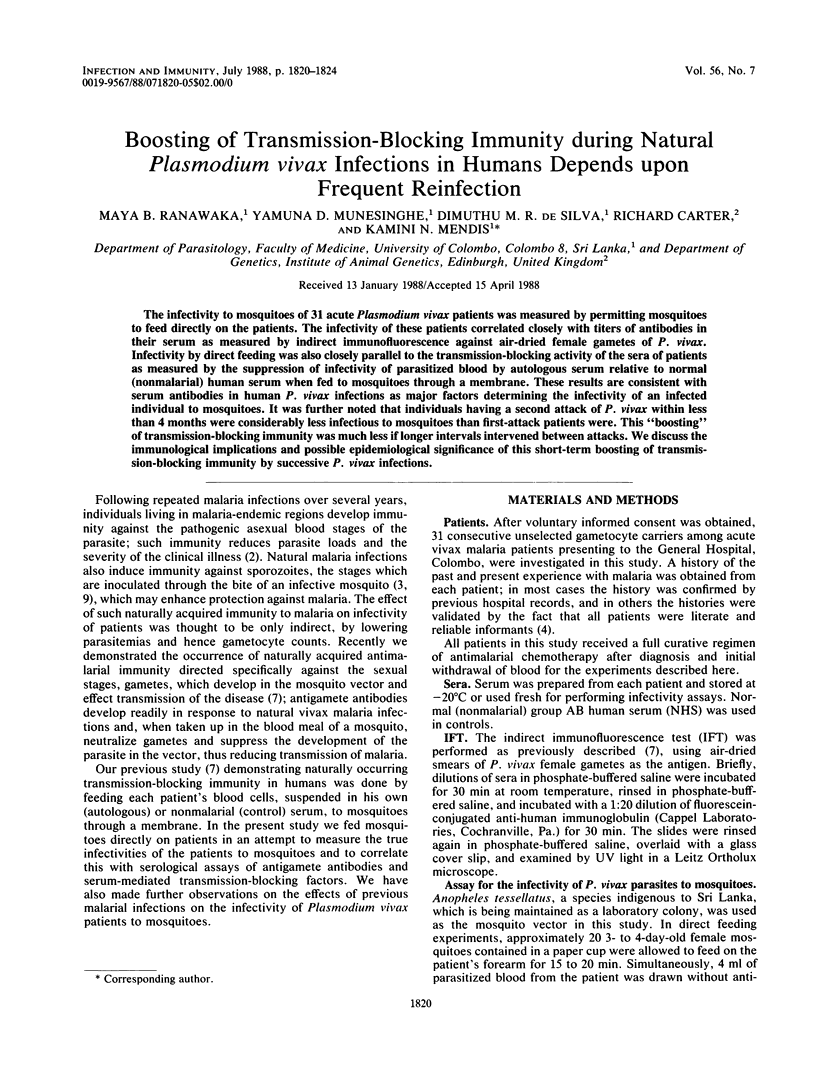
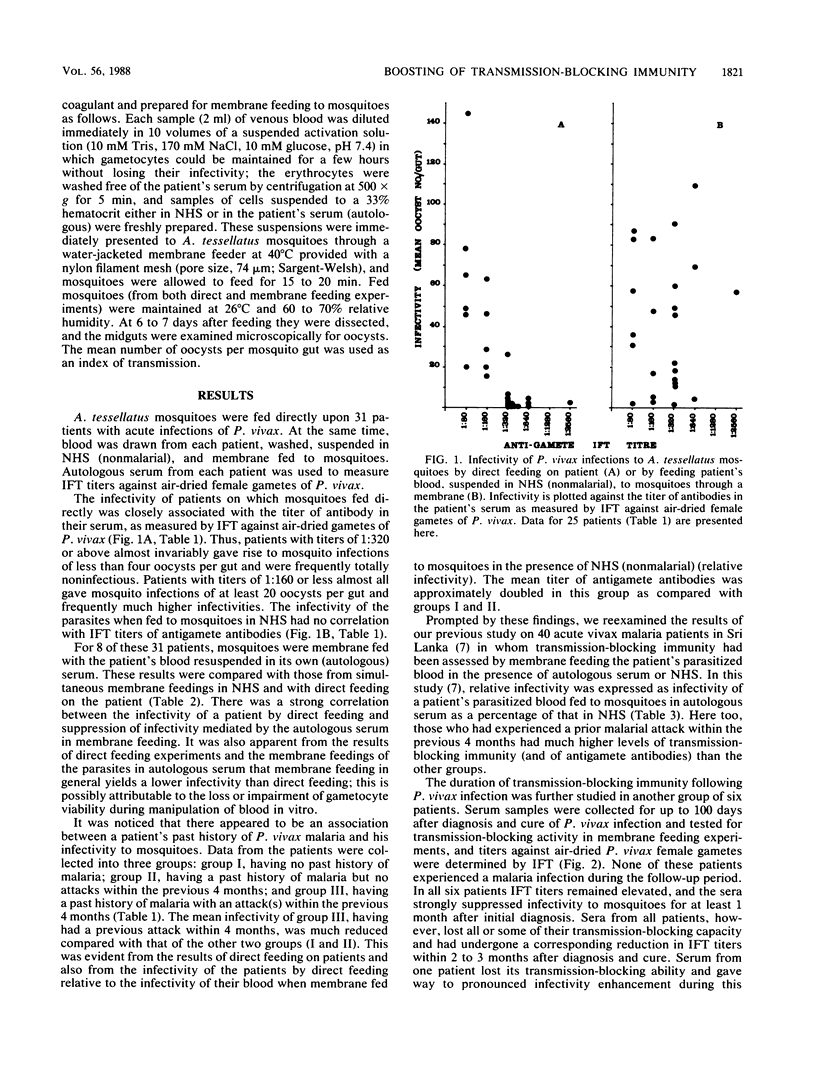
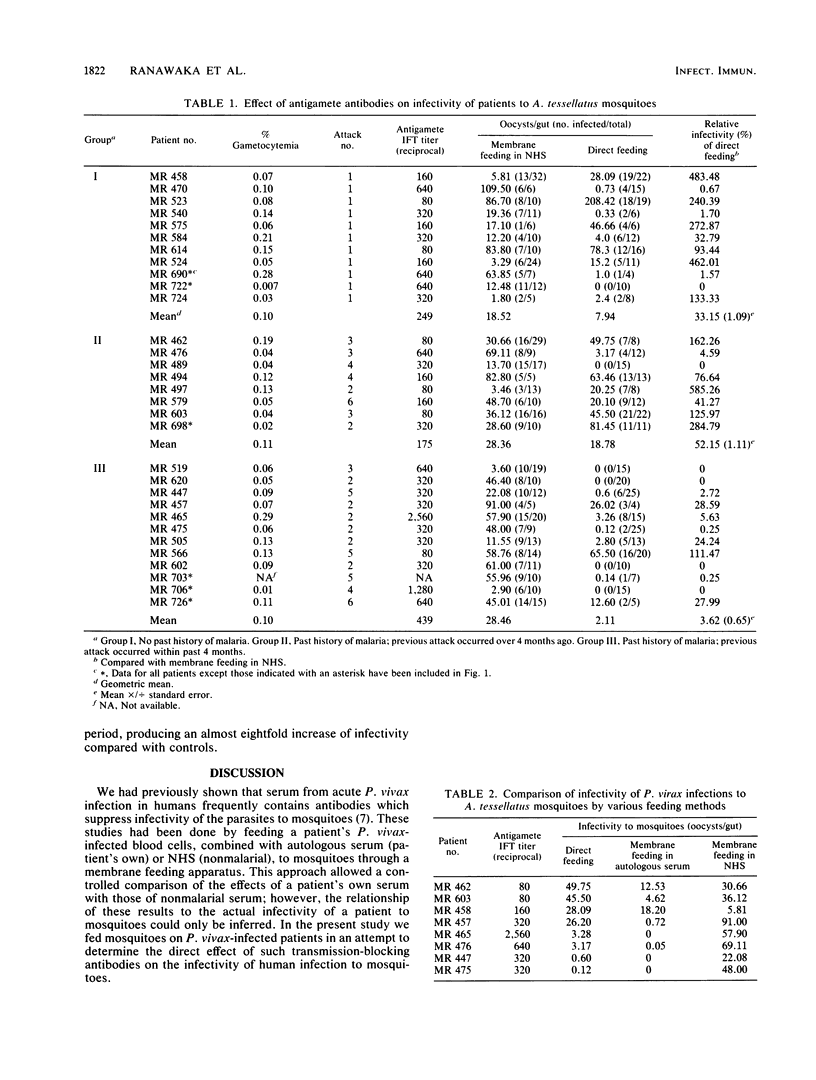
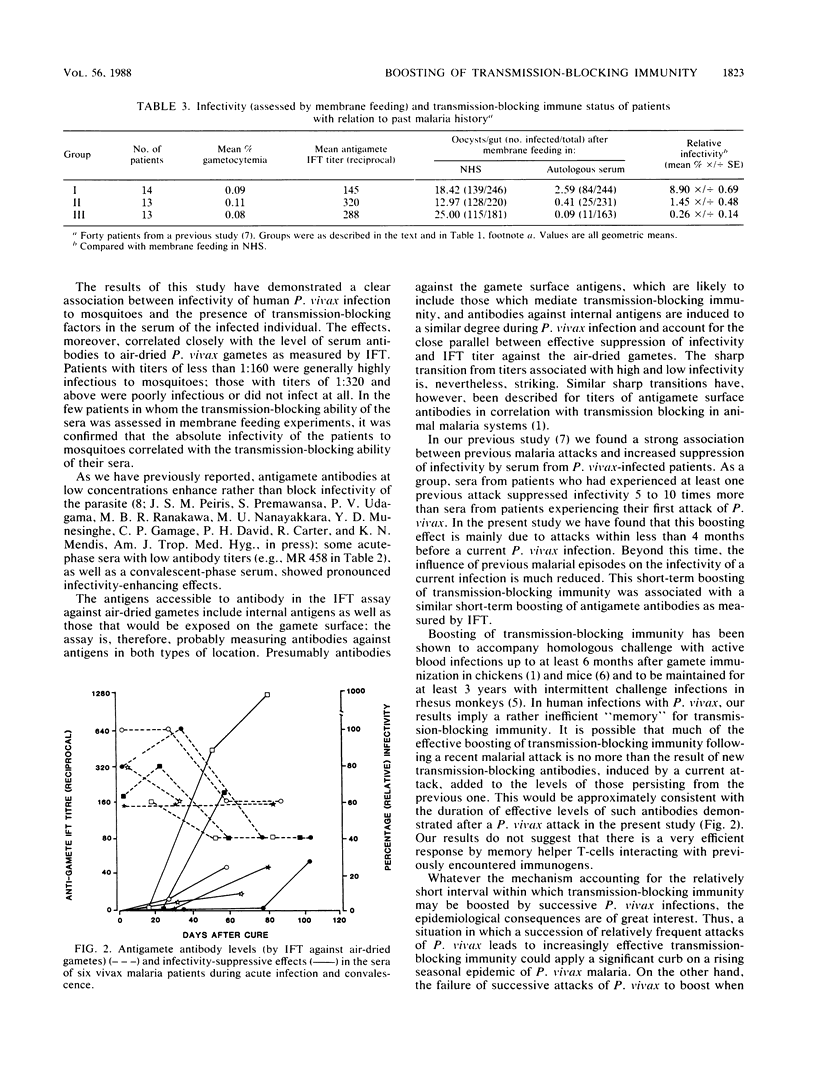
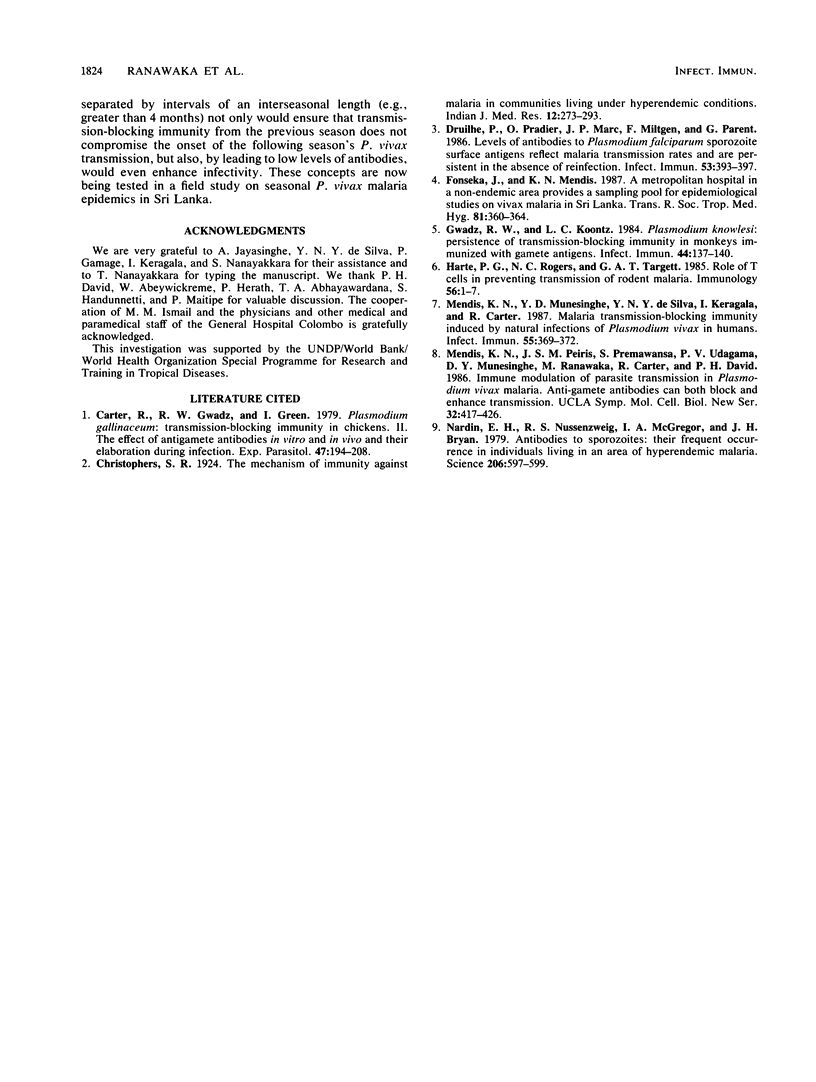
Selected References
These references are in PubMed. This may not be the complete list of references from this article.
- Carter R., Gwadz R. W., Green I. Plasmodium gallinaceum: Transmission-blocking immunity in chickens. II. The effect of antigamete antibodies in vitro and in vivo and their elaboration during infection. Exp Parasitol. 1979 Apr;47(2):194–208. doi: 10.1016/0014-4894(79)90073-0. [DOI] [PubMed] [Google Scholar]
- Druilhe P., Pradier O., Marc J. P., Miltgen F., Mazier D., Parent G. Levels of antibodies to Plasmodium falciparum sporozoite surface antigens reflect malaria transmission rates and are persistent in the absence of reinfection. Infect Immun. 1986 Aug;53(2):393–397. doi: 10.1128/iai.53.2.393-397.1986. [DOI] [PMC free article] [PubMed] [Google Scholar]
- Fonseka J., Mendis K. N. A metropolitan hospital in a non-endemic area provides a sampling pool for epidemiological studies on vivax malaria in Sri Lanka. Trans R Soc Trop Med Hyg. 1987;81(3):360–364. doi: 10.1016/0035-9203(87)90135-0. [DOI] [PubMed] [Google Scholar]
- Gwadz R. W., Koontz L. C. Plasmodium knowlesi: persistence of transmission blocking immunity in monkeys immunized with gamete antigens. Infect Immun. 1984 Apr;44(1):137–140. doi: 10.1128/iai.44.1.137-140.1984. [DOI] [PMC free article] [PubMed] [Google Scholar]
- Harte P. G., Rogers N. C., Targett G. A. Role of T cells in preventing transmission of rodent malaria. Immunology. 1985 Sep;56(1):1–7. [PMC free article] [PubMed] [Google Scholar]
- Mendis K. N., Munesinghe Y. D., de Silva Y. N., Keragalla I., Carter R. Malaria transmission-blocking immunity induced by natural infections of Plasmodium vivax in humans. Infect Immun. 1987 Feb;55(2):369–372. doi: 10.1128/iai.55.2.369-372.1987. [DOI] [PMC free article] [PubMed] [Google Scholar]
- Nardin E. H., Nussenzweig R. S., McGregor I. A., Bryan J. H. Antibodies to sporozoites: their frequent occurrence in individuals living in an area of hyperendemic malaria. Science. 1979 Nov 2;206(4418):597–599. doi: 10.1126/science.386511. [DOI] [PubMed] [Google Scholar]


